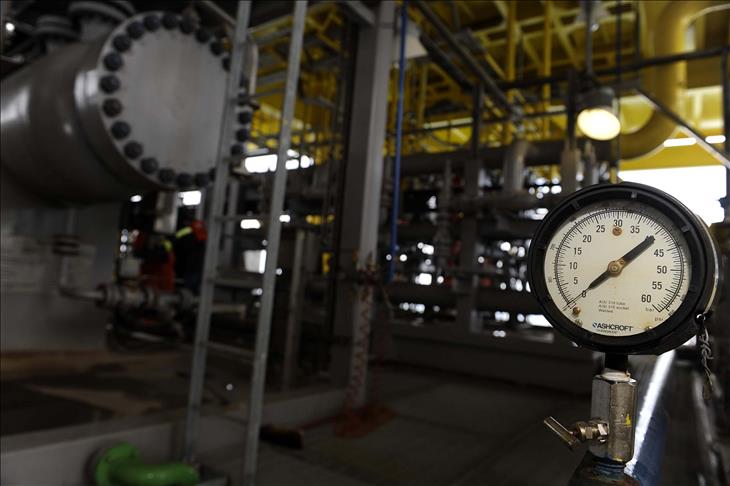
By Ilgin Karlidag
BRUSSELS
Russia could be the biggest loser from the cancellation of the South Stream pipeline, designed to transport natural gas across the Black Sea to Southern and Central Europe, as it wants to weaken its dependence on Ukraine as a pipeline transit country, according to a senior analyst.
The comments by Judy Dempsey, senior associate at Carnegie Europe, come a week after Russian President Vladimir Putin announced during a visit to Turkey that South Stream was being dropped in favor of a plan to build a pipeline to Turkey to supply gas to Europe.
Dempsey told Anadolu Agency (AA):''Russia lost because it wishes to dominate the markets in Western Balkans - now they have suffered a setback."
The South Stream, by providing gas to Europe through the Black Sea, would have given Russia the power to the stop flow of gas to Ukraine without affecting others parts of Europe.
Russian energy giant Gazprom, the largest extractor of natural gas in the world, cut gas supplies to Ukraine in June, claiming Kiev’s national oil company Naftogaz had not paid its gas bill of about $4.5 billion.
The Ukrainian crisis along with price disputes between Moscow and Kiev have interrupted energy supplies this year.
- 'No acceptance'
The European Commission has been against the construction of the South Stream pipeline, citing concerns over breaching EU public procurement rules.
Christian Egenhofer, Senior Energy Analyst at Brussels-based think-tank Center for European Policy, told AA: ''If the South Stream would have been built without compliance with [EU law], it would have given Russia enormous influence over Southeastern Europe, something the EU cannot and must not accept."
Russia would have to accept the EU’s condition that the South Stream be built in compliance with an EU law known as "third package", which allows European consumers to choose between different suppliers and limits how much of a pipeline a company can own, according to experts.
Egenhofer said that, as Russia would have owned the pipeline and had the power to decide whether to fill it with its own gas only, it would therefore prevent competition.
''[EU law] says if there is a pipeline, different importers have to have access to that same pipeline because otherwise you’re not going to have competition,'' Egenhofer said.
Dempsey added: ''Once Gazprom realized the [EU Commission] gets tough, they backed away.'
''The EU Commission is not willing to allow Gazprom and other members to actually dominate the pipeline."
- 'Economic rationale'
She added that Turkey was in a powerful bargaining position as it is not dependent on Gazprom and can "shop around".
Turkey announced in 2011 plans for the Trans Anatolian Natural Gas Pipeline (TANAP), a natural gas pipeline which would transport gas from Azerbaijan through Turkey to Europe.
But, as the South Stream is beneficial to both the Russia and EU, Egenhofer is more optimistic that it will be built.
''It takes time, it takes a lot of negotiations, but in the end if there is an economic rationale, which I think there is in both cases. I think it will come,'' he said.
Russia has an interest in bringing its gas to South and Central Europe, including Bulgaria, Serbia, Hungary, Austria, Slovenia and Italy, as an alternative for these countries would be Turkmen gas – which Russia does not want as a competitor, according to Egenhofer.
From the EU side, Russian gas delivered in compliance with EU law would be beneficial for the bloc’s markets and increase competition and leverage.
- 'Clear conditions'
Another alternative for the EU would be, for example, Norwegian gas or renewables – which are expensive.
European Commission President Jean-Claude Juncker insisted last week that the South Stream project could be built, days after Putin announced the cancellation of the project.
Juncker declared: "South Stream can be built - the conditions have been clear since a long time. The ball is in the court of Russia."
Speaking alongside Juncker, Bulgarian Prime Minister Boyko Borisov said that Putin’s statements were premature and Bulgaria was in favor of the project.
''We want South Stream to be built in compliance with EU legislation,'' Borisov said.
Anadolu Agency website contains only a portion of the news stories offered to subscribers in the AA News Broadcasting System (HAS), and in summarized form. Please contact us for subscription options.







